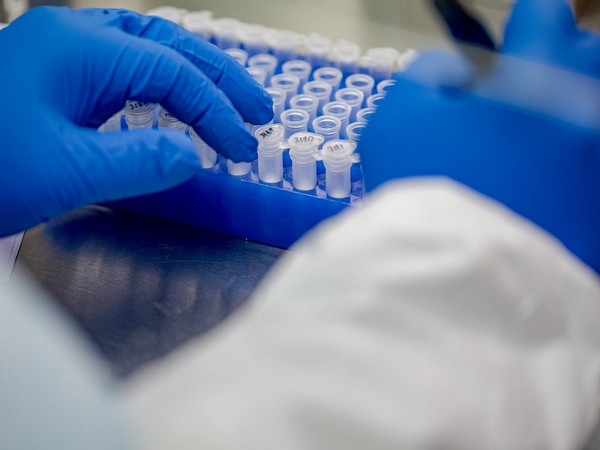Chinese company offers coronavirus vaccine to students
Now, CNBG says it will provide the vaccine for free to Chinese students who study abroad. More than 168,000 people signed up to receive the vaccine via an online survey and more than 91,000 are being considered, CNBG said on its website.

- Country:
- Taiwan
A Chinese drug developer is offering an experimental coronavirus vaccine to students going abroad in a strategy health experts say raises safety and ethical concerns. China National Biotech Group has two vaccine candidates out of five from Chinese developers that are in the final stages of clinical trials. They are part of a global race to develop a vaccine that, if they are successful, offers the fledgling Chinese industry the potential for prestige and worldwide sales.
CNBG's vaccine has been given to medical workers and employees of Chinese companies being sent abroad under an emergency authorization for people in high-risk categories. Now, CNBG says it will provide the vaccine for free to Chinese students who study abroad.
More than 168,000 people signed up to receive the vaccine via an online survey and more than 91,000 are being considered, CNBG said on its website. That page had been removed by Tuesday. A student who is due to go to Britain said she signed up via the online link after classmates said they received the vaccine.
The student, who would give only her English name, Sally, said she started to hear in September that the vaccine was available to people such as her. She said other students said she might need to travel to Beijing, the national capital, or Wuhan, where the outbreak emerged in December, to receive the vaccine. The ruling Communist Party declared victory over the outbreak in March following anti-virus measures that isolated cities with a total of 60 million people. The country has reported 4,634 deaths and 85,622 confirmed cases.
If the vaccine works, it might help protect students going to Europe or the United States, where the pandemic is still raging, medical experts said. But they said developers need to make clear it is unproven and keep track of what happens to people who receive it. If the vaccine doesn't work, then “this is giving people a false sense of security,” said Sridhar Venkatapuram, a specialist in bioethics at King's College London's Global Health Institute.
Chinese developers have announced plans to test vaccines in Indonesia, Morocco and other countries. But their approach also has prompted concern. Papua New Guinea turned back a flight carrying 180 Chinese mine workers in August after they received a vaccine in a possible unauthorized trial. The Papuan government demanded an explanation from Beijing.
“The manufacturer has an obligation to obtain follow-up information” from people who receive a vaccine, K. Arnold Chan, a National Taiwan University expert on drug regulation, said in an email. Failing to do that “is irresponsible and not compliant with international standards,” he wrote.
It was unclear whether Chinese students were being offered the CNBG vaccine under the same emergency authorization. The agency that oversees drug and vaccine approvals, the National Medical Products Administration, did not respond to questions sent by fax. CNBG did not respond to a request for comment.
A business news website named Star Market Daily reported Monday that anyone could sign up on CNBG's webpage to receive the vaccine. It said students who plan to study overseas would get priority. “Currently, it seems Chinese students going abroad have a strong desire to take the vaccine,” a CNBG employee was quoted as saying by a state-owned newspaper, the Paper, based on the survey results in September.
However, a separate report by the Health Times, another state-owned newspaper, cited unidentified sources in the company as denying anyone could sign up to receive a vaccine in Beijing or Wuhan. The final stage of clinical trials, conducted on larger groups, is used to find any rare side effects and study the effectiveness of a treatment. The first and second stage trials are meant to determine whether a vaccine or treatment is safe.
CNBC has given the vaccine to 350,000 people outside its clinical trials, a company executive said in September. The trials have about 40,000 people enrolled. More than 600,000 Chinese students studied abroad before the pandemic, according to Ministry of Education figures. They make up a large share of the foreign student body in the United States, Britain, Australia and some other countries.
Western universities are “not protecting their students,” Venkatapuram said. “The company is basically offering its citizens protection going outside of China, which in essence is what any country would ideally be doing.”.
(This story has not been edited by Devdiscourse staff and is auto-generated from a syndicated feed.)
- READ MORE ON:
- Chinese
- K. Arnold Chan
- Sally
- Sridhar Venkatapuram
- English
- Papua










